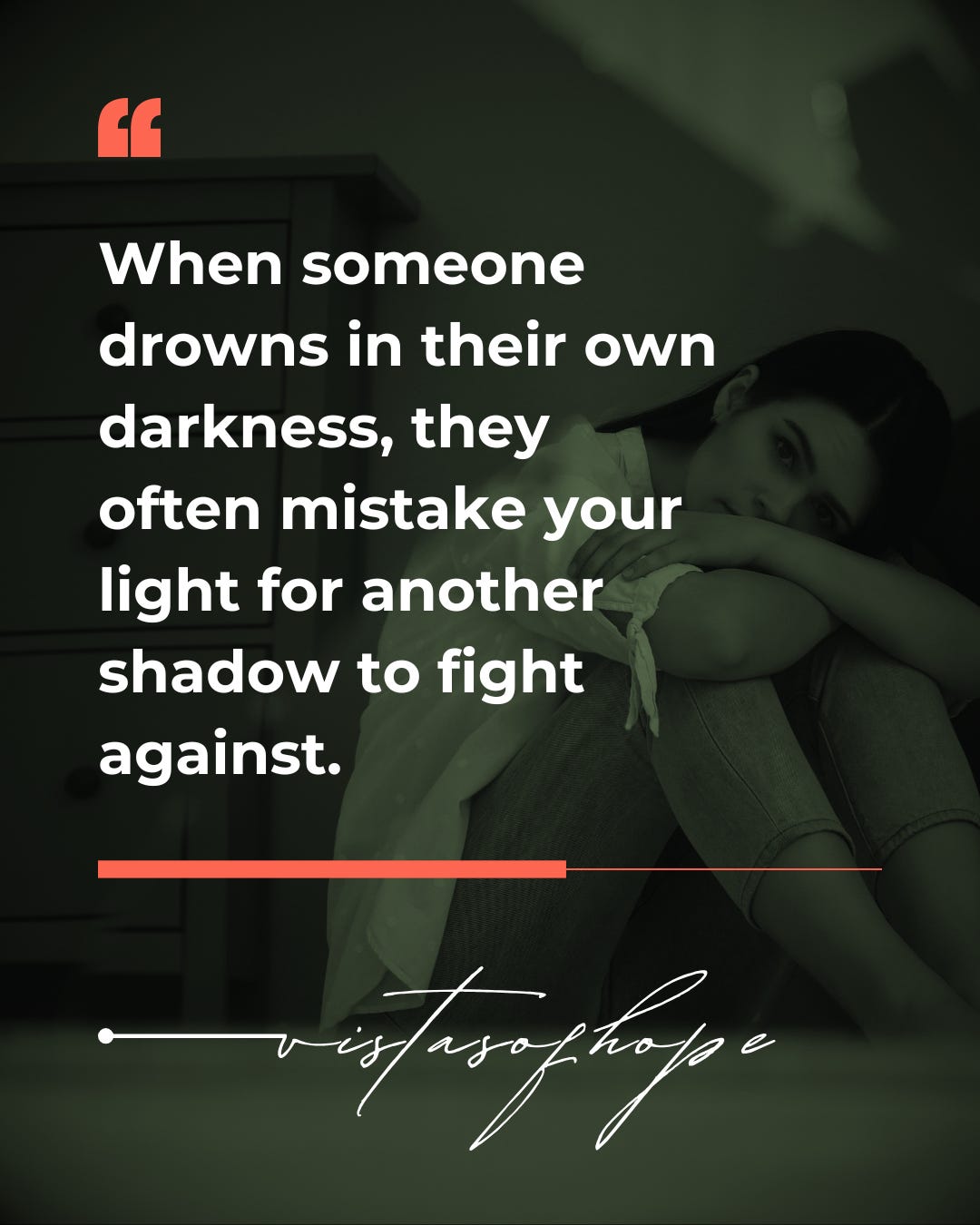Dear Someone: Your love isn't wrong just because they can't accept it.
Read this if you're loving someone who seems determined to push you away, sabotage your relationship, or make you pay for caring about them
Dear, Dear Someone, _
The confusion runs deep when you love someone who seems determined to make you regret it. Each gesture of love you offer becomes a weapon they turn against you. Each step forward you take together becomes a reason for them to retreat three steps back. Your warmth is met with cold shoulders, your kindness with cruel words, your devotion with distance.
Keep reading with a 7-day free trial
Subscribe to Vistas of Hope to keep reading this post and get 7 days of free access to the full post archives.



